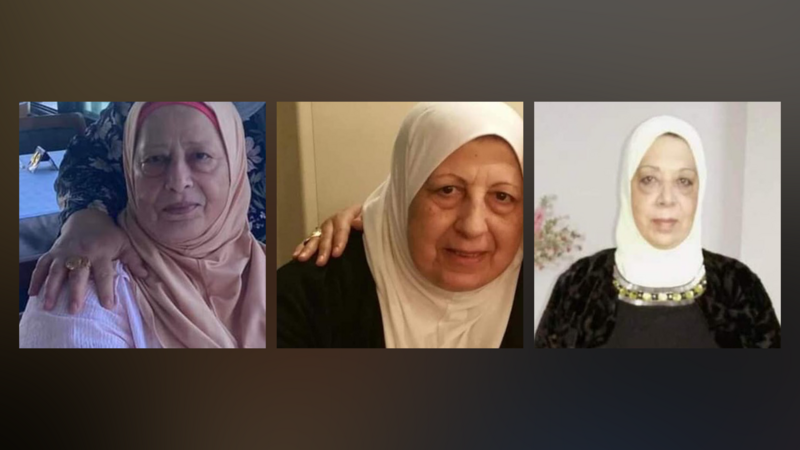The Electronic Intifada 21 October 2024

The al-Ghalayini sisters. From left to right: Arwa, Maysoon and Rofida.
When the Israeli genocide in Gaza began more than a year ago, the three elderly al-Ghalayini sisters — Maysoun, 80, Rofida, 65, and Arwa, 61, decided they would not leave their house in al-Rimal neighborhood in Gaza City.
In January, Israeli soldiers surrounded their home and ordered them to move to southern Gaza.
When they did not comply, the soldiers threw a firebomb, according to their brother Abdulrahman al-Ghalayini, who is in Egypt and spoke to The Electronic Intifada online.
The flames began sweeping through a room in which the sisters were sitting until Arwa succeeded in putting it out, Abdulrahman said.
Although the sisters survived the ordeal, they lost their two closest neighbors, Daya Abdulshafi, 79, and her daughter Rasha, 52, who were killed during the Israeli siege.
The sisters ran out of luck this past July, however, when Israeli forces reinvaded western Gaza City.
On 10 July soldiers forced their way into the sisters’ home.
“They bulldozed a wall, then shot Arwa in the head as she tried to open the door, then they turned their guns on Maysoun, killing her, and leaving me wounded alone beside my sisters’ bodies,” Rofida told Joud Akila, a neighbor, in shaky voice on 10 July.
Rofida stayed on the line with Joud throughout the ordeal. But after about 40 minutes, she saw smoke coming from another room, Joud told The Electronic Intifada. The soldiers had intentionally set part of the house on fire, Rofida told Joud in growing panic.Soon, all the sisters’ phones went dead.
Abulrahman said it is impossible to imagine how terrifying it must have been for Rofida as she looked at her two dead sisters unable to do anything.
He is sure, he said, that grief killed her before the smoke and the fire.
Final farewell
Maysoun, Rofida and Arwa were born and grew up in Gaza. They all had university degrees in different fields. Maysoun held a management role in the Gaza City municipality, Rofida worked in a mental health institution, and Arwa was employed by Al-Quds University.
The youngest of the three, widely known for her generosity, Arwa took care of her two sisters as they aged. During the genocide, she was responsible for communicating with neighbors to help them bring what the three sisters needed.
After the Israeli occupation withdrew most of its forces from western Gaza City on 12 July, neighbors rushed to the sisters’ house.
They found no bodies, only charred bones, among the ashes.
They gathered the remains, wrapped them in a single shroud and buried the sisters together.
Sami A. Akkeila is a journalist based in Gaza.



